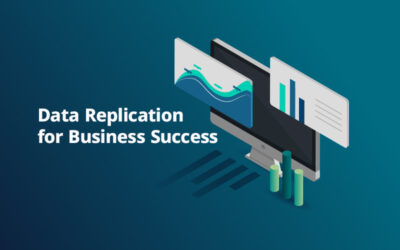Small businesses play a crucial role in supporting the local economy and provide employment to millions of people. According to a recent U.S. Small Business Administration (SBA) survey, there are over 31.7 million businesses in the U.S., employing 60.6 million people. The SBA estimates that small businesses create 1.5 million jobs annually. Outsourced solutions such as data entry and document conversion help small businesses manage their digitization transformation and stay relevant in the present world. Staying informed about industry developments and trends is essential to plan strategies to increase cash flow, grow, and serve customers better. This has become all the more important with the changes unleashed by the COVID-19 pandemic. Let’s take a look at the top trends and predictions for small-to-medium-sized businesses in 2022.
-
- Digital transformation with a purpose for change: In these volatile times, digital transformation has emerged as the mantra for everything from changing business processes to delivering value to customers. In fact, with the outbreak of the pandemic, going digital was no longer just an option or aspiration for small and medium sized businesses – it was essential for survival. Switch to remote work, cost reduction, improving customer service and experience and business agility and innovation goals are the main factors driving digital adoption. Artificial intelligence (AI), machine learning, and cloud computing will continue to play an increasingly important role in helping businesses stay competitive.
-
- Renewed focus on customers: Customers are constantly seeking products and services to meet their specific needs and aspirations. The recent technological, societal and environmental disruptions have dramatically changed customers’ needs and what they are willing to spend money on. The way customers are shopping and interacting with brands has changed. In 2022, businesses will aim to provide strong, value driven shopping experiences for customers. According to Ernst & Young’s “Future Consumer Index”, in early 2021, 43% of shoppers are now buying products online that they would have typically bought from brick-and-mortar stores. A Harvard Business Review article on the role of e-commerce in retail’s post-pandemic scenario, reported that 38% of customers intend to continue shopping more often online, but still visit stores that provide great experiences. Businesses will need to focus on providing value for customers both online and in-store. Identifying customer pain points and creating personalized customer journeys are the key to success.
-
- Ramping up ability to adapt to any crisis: According to a financesonline.com article, small businesses must be faster to adapt to any crisis. Many have already adjusted to operating in the new normal. From running even with minimal in-person transactions and home deliveries to providing sanitizers to both employees and customers, and implementing mask-wearing rules and social distancing arrangements, businesses have adopted all the measures needed to meet the new demands in retail during the pandemic. In the future, they will simply have to scale-up and accelerate the efforts to adapt to any crisis.
-
- Hybrid work model to stay: A new report from freelancer site Upwork reported that almost 41 million Americans are expected to have a remote job within the next five years. The hybrid work model – a combination of on-site work and remote work -evolved from the remote work approach which was forced on companies by the pandemic. It will continue to be relevant, especially in the technology industry. A survey by Nasscom and job portal Indeed reported that around 70% of IT companies are trying to make the hybrid model work effectively. The benefits of adopting a hybrid workplace for small businesses include improved employee morale and health, saving on real estate and rental expenses, and access to a wider talent pool to recruit the best workers. For the hybrid work place to work, organizations must make sure they have the necessary technology and support in place. New technology like Zoom and Microsoft Teams designed to promote online collaboration have made their way into homes and offices, and the advances are only expected to continue.
- Small businesses set to thrive: Guidant’s Small Business Trends survey identified the top businesses for 2022 as business services, food and restaurants, general retail health, beauty and fitness, automotive repair, in-home care, technology, in-home cleaning and maintenance, travel and lodging, and sports and recreation. Analysts say that the businesses that have suffered the most during the pandemic are set to come back in a big way. People looking to start a small business can consider foraying into these industries.
Small businesses will need to adapt to meet the new and growing needs and demands by embracing digitization. This includes managing and organizing data, ensuring that their digital processes are working efficiently, and delivering value to customers. BPO companies have been supporting businesses all through the pandemic, helping them improve their operational efficiency by leveraging advanced technology, scale to meet new demands, and reduce costs. This has allowed organizations to focus on their core competencies and deliver customer-centered experiences. The support of a reliable back office outsourcing partner can ensure efficient process management and greater sustainability and flexibility to meet the challenges of the future.




